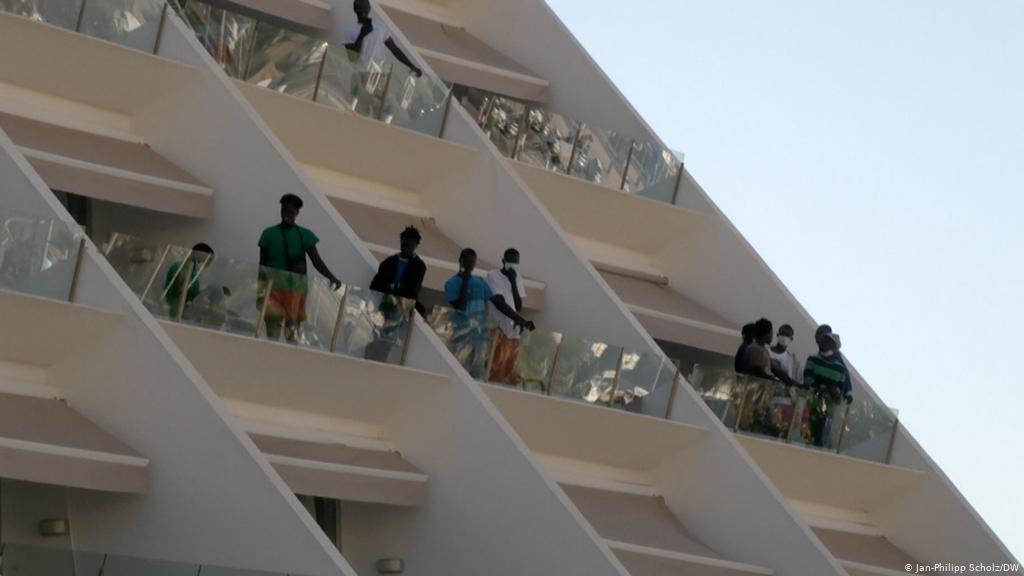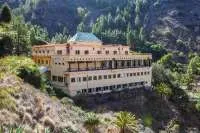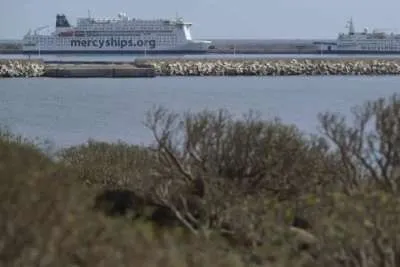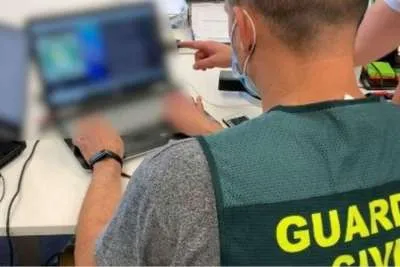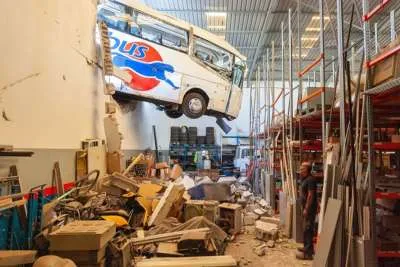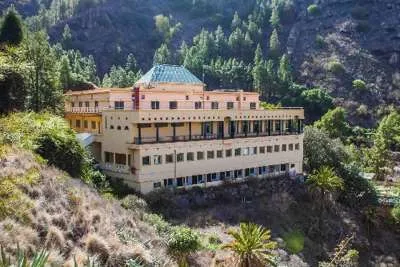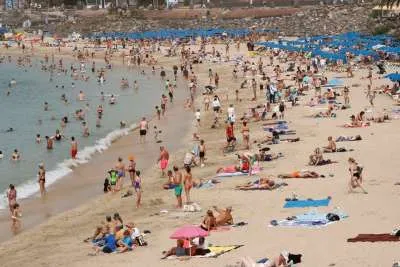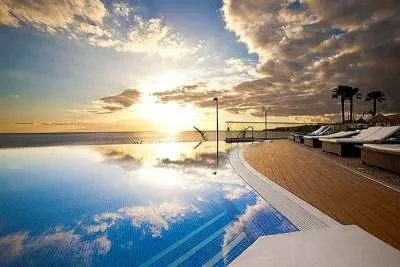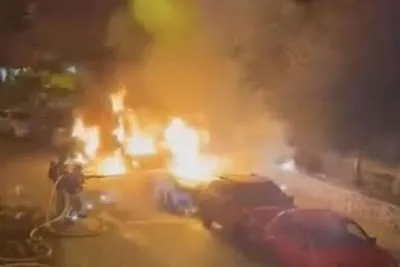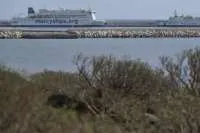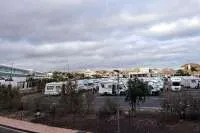Hoteliers are making more money from immigration than from tourism
- 20-01-2021
- Gran Canaria
- Canarian Weekly
Before the current migration crisis, the town of Arguineguín, in the municipality of Mogán in Gran Canaria, was famous to Brits for being the birthplace of footballer David Silva and the home of Anfi Beach Club one of the most exclusive resorts in Spain. Now it is famous for the images of thousands of immigrants sleeping in Red Cross tents on the dock.
The mayor of Mogan, Onalia Bueno, has been very vocal in the last few months, saying that she wants hotels and complexes in the tourist resort cleared of immigrants and relocated to government facilities as the situation, in her opinion, is causing long term damage to the area.
She also instigated legal proceedings against hoteliers giving them a deadline of 31st December to clear their complexes or face sanctions, as the housing of these arrivals conflicts the licensed use of the accommodation.
Yesterday she said: “We are initiating the proceedings to sanction hotel establishments for non-compliance with the Land Law and the Canary Islands Tourism Renewal Law. It is true that there is one, Arguineguín Park, which does not have a first occupation license. The government delegate has promised that the first to be evicted for their transfer to the Canarias 50 camp will be those from that new hotel where 900 immigrants have been accommodated.”
She also claims that Government administrations are ‘passing the buck’ to delay eviction, and that the municipality has the largest concentration of irregular immigrants in tourist complexes in the archipelago, because hoteliers are making much more money than they normally do with tourism.
“We still have not received a response from the administration to our request to stop allowing non-compliance with tourist and urban regulations with the use of tourist complexes as immigration reception centres. In the meantime hoteliers continue to make their facilities available to the Ministry of Migration, as they are are making much more money from immigration, from the monthly rent and the maintenance of the people, than with a tour operator. Plus they have not had to remove anyone from the ERTE, because they are run by the NGOs and charity foundations. The ministry contracts for those of legal age and the Ministry of Social Rights exercises its powers over unattended minors”.
She continued that “Mogán has 20,500 inhabitants and 35,000 accommodation places. We live mainly from the tourism sector, with great agricultural potential: the highest production of avocado, mango and tropical pineapple in Gran Canaria. And it is home to the two most important resorts on the island: Arguineguín and Playa de Mogán”.
Over the last few weeks, the mayor of Mogan has been accused of being xenophobic and causing unrest, but she fights back saying that it is not the residents who are causing the problems: "the immigrants are those who do not comply, they do not cover themselves with a mask, they do not keep to the curfew. They are the ones who have come from the camp and have been put up in hotels."
In the last few days there have been reports (not all substantiated) of burglaries, fights, and violence involving immigrants, so she has called for further protection from security forces, saying “We have asked the government to keep the GRS (Reserve and Security Groups of the armed forces) unit in Mogán until immigrants, both older and younger, are relocated. The 55 personnel of the Guardia Civil and those of the Local Police are insufficient to deal with minor, serious and very serious incidents, which are increasing.”
“We were especially referring to the last two weeks, with the theft in a restaurant establishment: three times on the same day. Insecurity is not a perception, but a reality in a municipality that is home to 2,800 immigrants and almost 600 unaccompanied minors. It is the largest concentration on the island of Gran Canaria”.
She said finally that she hopes of assistance from the Government to focus on the future, “The hope is that the immigrants will be relocated to the military camps, that we return to normality in the municipality so that the few tourists willing to travel, come here, because the most asked question by those faithful to Mogán, is if there are still immigrants in the hotels."
Other articles that may interest you...
Trending
Most Read Articles
Featured Videos
TributoFest: Michael Buble promo 14.02.2026
- 30-01-2026
TEAs 2025 Highlights
- 17-11-2025


